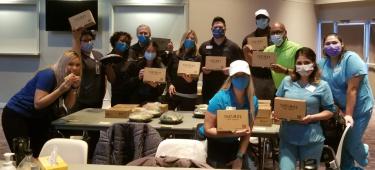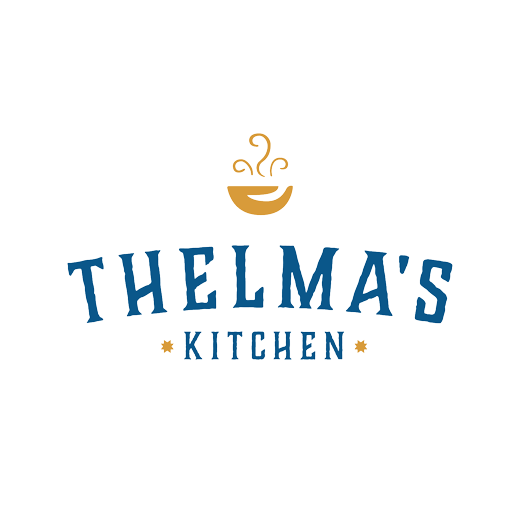
Member Spotlight: Thelma's Box Lunch
Mar 23, 2021
A year ago, it was a common sight to see people constantly going in and out the doors of Thelma’s Kitchen. The donate-what-you-can community café at 31st and Troost served up some of the best food in the city in a bright, sunny restaurant space bringing together Kansas Citians from all walks of life. Customers could purchase a meal, donate to provide a meal for someone else, or pay for the cost of their meal with a little sweat equity – bussing and cleaning tables, helping wash dishes, and just doing whatever else was needed. The proceeds from Thelma’s Kitchen went back into its parent organization, Reconciliation Services, to help support the services and support the agency provides to thousands of people each year. It was a successful model that brought together community volunteers to prepare and serve lunch, neighbors and customers to enjoy the food, and made for some Instagram-worthy meal photos as people packed Thelma’s Kitchen with smiling faces.
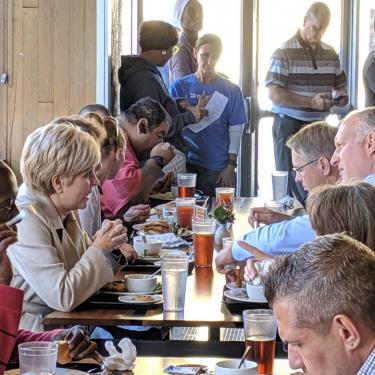
Then COVID hit.
“We had to close the restaurant,” said Father Justin Mathews, Executive Director of Reconciliation Services. “We had to temporarily close because we didn’t have a safe way for neighbors to gather and have the kind of interactions they were used to having. We couldn’t have volunteers here in a COVID-safe way so we had to close our doors.”
Thelma’s Kitchen has served countless customers since opening in 2018, and Mathews knew he couldn’t keep the restaurant closed for long when so many Kansas Citians were counting on it. First, Thelma’s is an important revenue stream for Reconciliation Services, which has supported the Troost community for more than 30 years. The organization provides trauma therapy, housing and utility assistance, employment preparation, has a Foster Grandparents program, and helps people obtain important documents and forms of ID. Closing the restaurant meant fewer resources to do that work.
Secondly, and perhaps most importantly, closing would mean customers – or neighbors as Mathews and the RS team say - would be missing out on connection. “One of the things that COVID has underscored is the level of loneliness that our neighbors struggle with,” Mathews explained. “That social isolation is one of the negative determinants of health that the Thelma's Kitchen social program is designed to overcome. We didn’t want to all of a sudden go to dark at the windows and be closed.”
So Mathews and his team did what nearly every workplace has had to do over the past year: pivot. After two days of being closed, they partnered with Harvesters to make sure people had access to meals. Normally, Thelma’s Kitchen does not partner with Harvesters because the restaurant has a pay-what-you-can model while Harvesters’ policy doesn’t allow money to change hands. But Mathews wanted to make sure his team could still provide food to people. Through the Harvester’s partnership, they gave away 12,000 free meals in just a few months.
After that, Thelma’s Kitchen turned to plexiglass. “I think we bought up all the plexiglass on the East Side,” Mathews joked. “It was last summer when there was a glimmer of hope when we might open up, and we tried to do that. But we found it was too difficult to keep our neighbors COVID-safe, and people weren’t ready to come back.” Thelma’s Kitchen was open for two weeks before closing once again.
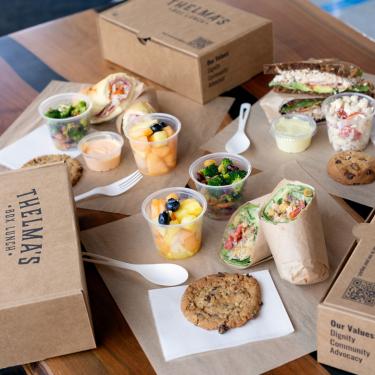
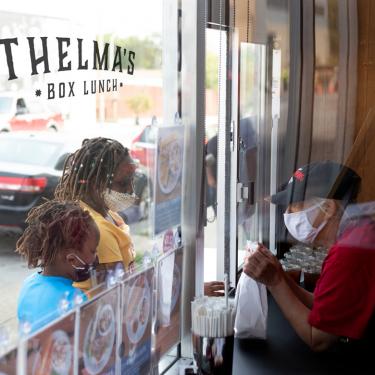
The next – and current – pivot seems to be working. After closing down for a few weeks, Mathews made the strategic decision to accelerate the plan for Thelma’s Kitchen Box Lunch that had already been in the works. “We had always planned on running a catering operation as a social venture, but originally we were going to run it in tandem with the restaurant. We realized if we put in a to-go window we could have a daily Monday through Friday, 11 a.m. to 2 p.m. restaurant just like we used to,” said Mathews. Customers can order online or at the to-go window at 31st and Troost and pick up their food when it’s ready. People can donate the suggested amount of $11 to help cover the cost of lunch and help support the agency’s social and mental health services, donate a little extra to pay it forward, or donate what they can.
“Every box goes to support the social mental health services that Reconciliation Services neighbors need more than ever,” said Mathews. More than ever is right. In 2020, Reconciliation Services helped more than 840 people with rent or utilities assistance so that they could stay in their homes and off the streets. They distributed nearly $1 million in direct client aid; the average for rent assistance was $656 and the average for utilities was $359.
Mathews says this is the most successful model they’ve been able to put together since COVID, especially because Thelma’s Box Lunch is a way for businesses to still support Thelma’s Kitchen and Reconciliation Services. “We’ve been reaching out to our corporate friends and to anyone who eats lunch saying we have the best lunch in KC,” he said. Volunteers deliver group orders of 5 or more lunches to businesses and other locations all across the Metro. They've already served more than 70 organizations since the pivot. “The mission of Thelma’s enables all of us to participate in a way where we can both enjoy a great lunch but also make sure that the social and trauma therapy services that are desperately needed right now are available.”
